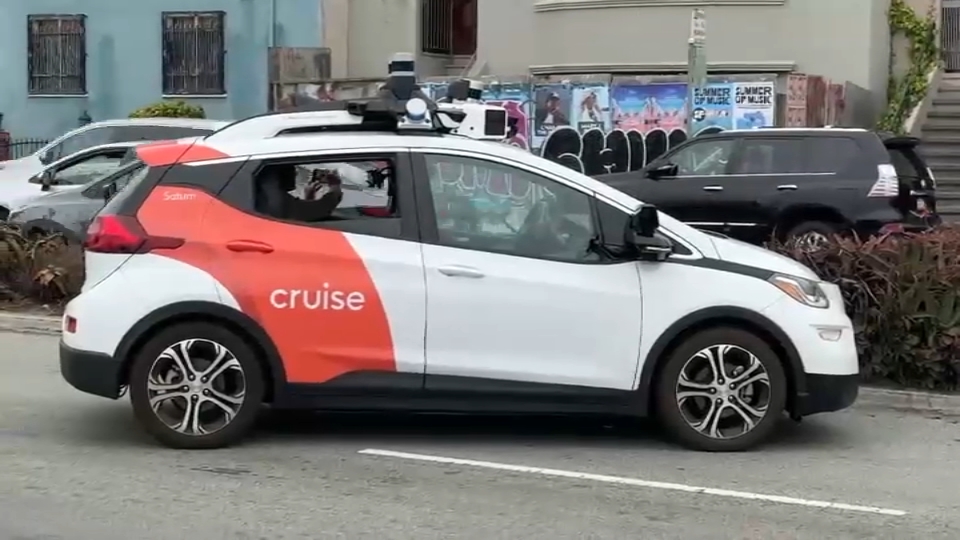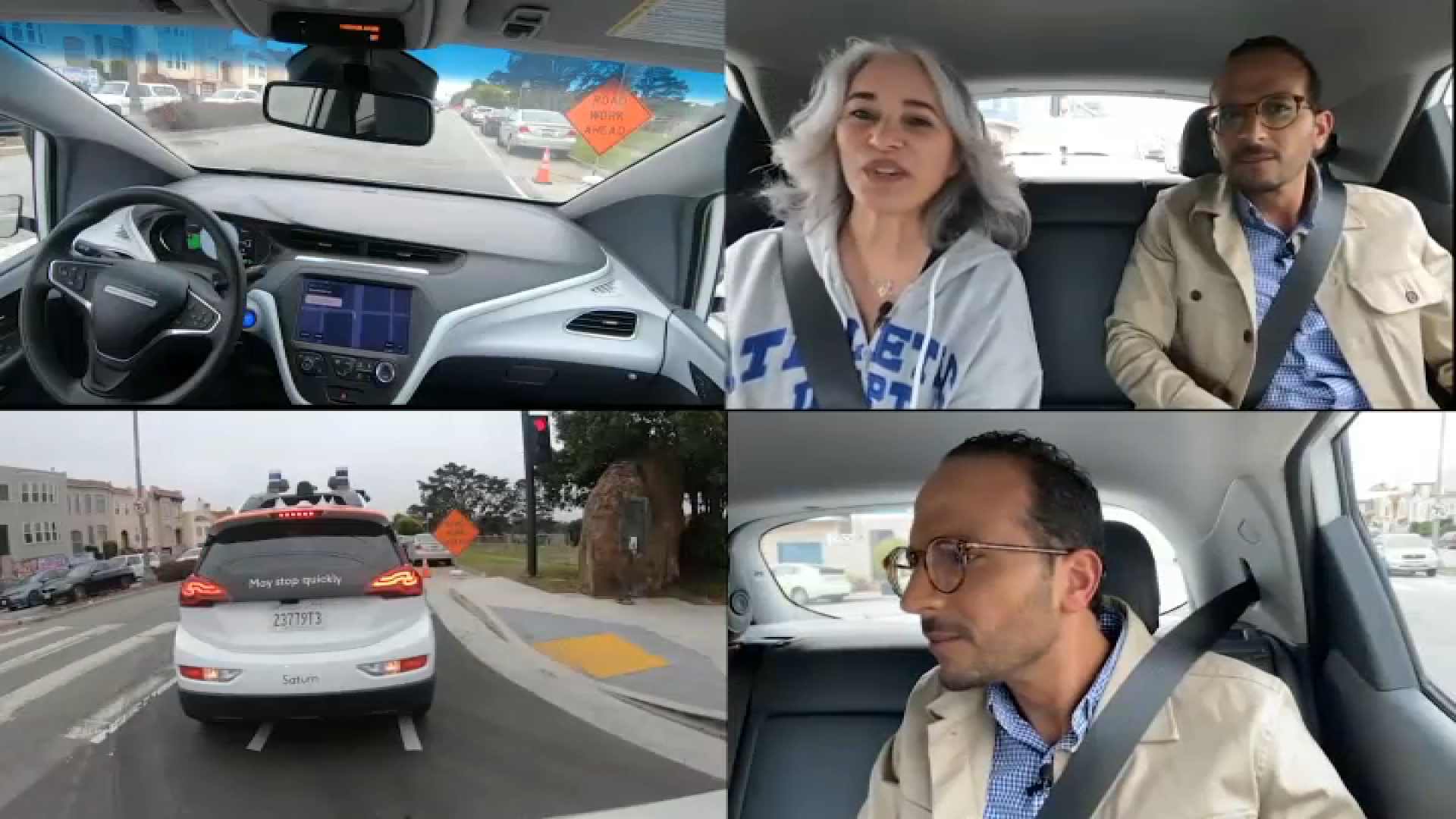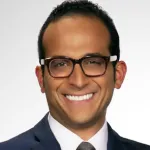San Francisco's top legal counsel is the latest public official to weigh in on the ongoing controversy involving driverless cars. City Attorney David Chiu, on behalf of San Francisco, filed two motions Wednesday with the California Public Utilities Commission (CPUC), urging state regulators to reverse the decision it handed down last week, which gave driverless car companies, Waymo and Cruise, permission to expand their ride-hailing fleets throughout San Francisco without any cap on the number of robotaxis they can release onto the city's roadways.
"We want to make sure that as this new powerful technology is being deployed, that our city is safe and we're not convinced of that at this time," said Chiu during an interview with the NBC Bay Area Investigative Unit. "We're hoping for a staged expansion to make sure that as the number of autonomous vehicles increases on the streets of San Francisco, that it is tethered to safety ... so before there is unfettered, unlimited expansion of automated vehicles on our streets, there are some reasonable safeguards and guardrails."
Motions warn 'San Franciscans will suffer serious harm'
According to the city's two motions, one centered on Waymo and the other on Cruise, "San Francisco will suffer serious harm if [Waymo and Cruise are] allowed expansion in the City with no limitations on geographic area, service hours and fleet size.”
The motions request regulators pause the approved expansion as well as schedule another hearing to debate the issue, even though it was just last Thursday when the CPUC, in a 3 to 1 vote, decided to move forward with the expansion plans proposed by Waymo and Cruise.
When asked why the city expects to change the minds of regulators so soon after they issued their decision, Chiu noted that even since the recent CPUC vote, driverless cars continue to cause traffic jams and potential safety issues on San Francisco roadways.
Everyday, we keep getting new reports of things that are happening on our streets that are very concerning.
David Chiu, San Francisco City Attorney
"Everyday, we keep getting new reports of things that are happening on our streets that are very concerning."
Get a weekly recap of the latest San Francisco Bay Area housing news. Sign up for NBC Bay Area’s Housing Deconstructed newsletter.
The city's latest efforts to drive away the expansion comes in the wake of an NBC Bay Area investigation, which revealed self-driving cars don't always make for a smooth ride.
California transportation records obtained by the Investigative Unit show self-driving cars have been involved in 280 crashes over the past five years across California, resulting in at least 64 injuries and a dead dog. While state records reveal other parties caused some of those accidents, it's unclear how many in light of incomplete data.
Waymo and Cruise already heading towards expansion
Since last week's CPUC vote, both Waymo and Cruise have already announced varying levels of expansion. Next Monday, Waymo finally begin charging passengers for its driverless rides. While the company has already been shuttling passengers around the clock all throughout San Francisco, it didn't have regulatory approval to actually charge fares -- so the rides have been free. Cruise, on the other hand, has been allowed to charge fares, but only in certain neighborhoods during overnight hours. This past Tuesday, however, Cruise expanded its fared service to nearly all of San Francisco but still only during the late-night hours of 9pm - 5:30am.
While San Francisco's pair of motions total 168 pages, it's unclear what, if anything, will come of the filing. The CPUC tells the Investigative Unit that it is reviewing San Francisco's motions, but did not provide any timeline on when or how it plans to respond.
Waymo, in a statement, noted that it supports the CPUC's original decision and says its driverless cars are continuing to provide "safe and accessible mobility to San Franciscans."
It's unfortunate to see the city use public resources to bypass that decision and restrict a technology with an excellent safety record used by tens of thousands of SF residents."
Drew Pusateri, Cruise spokesperson
Cruise, which also provided a statement, said the CPUC's decision was "the result of a months-long process that saw public input and support from accessibility groups, labor unions, and community advocates." A Cruise spokesperson added, "it's unfortunate to see the city use public resources to bypass that decision and restrict a technology with an excellent safety record used by tens of thousands of SF residents."
"With all due respect, of course, that is what they're going to say," Chiu said. "Our hope is that rather than an unlimited, unfettered expansion of automated vehicles on the streets of San Francisco, that the expansion is staged -- that it's tied to the demonstration, that the expansions are safe."
While the CPUC granted Waymo and Cruise the ability to increase their fleet size exponentially, both companies have said they plan to expand on a gradual basis.
"And we've said right back, that's what you are telling us you're going to do, why not have that be built into the policy," Chiu said. "We want to have something in place to ensure that's going to happen."
Contact The Investigative Unit
submit tips | 1-888-996-TIPS | e-mail Bigad




